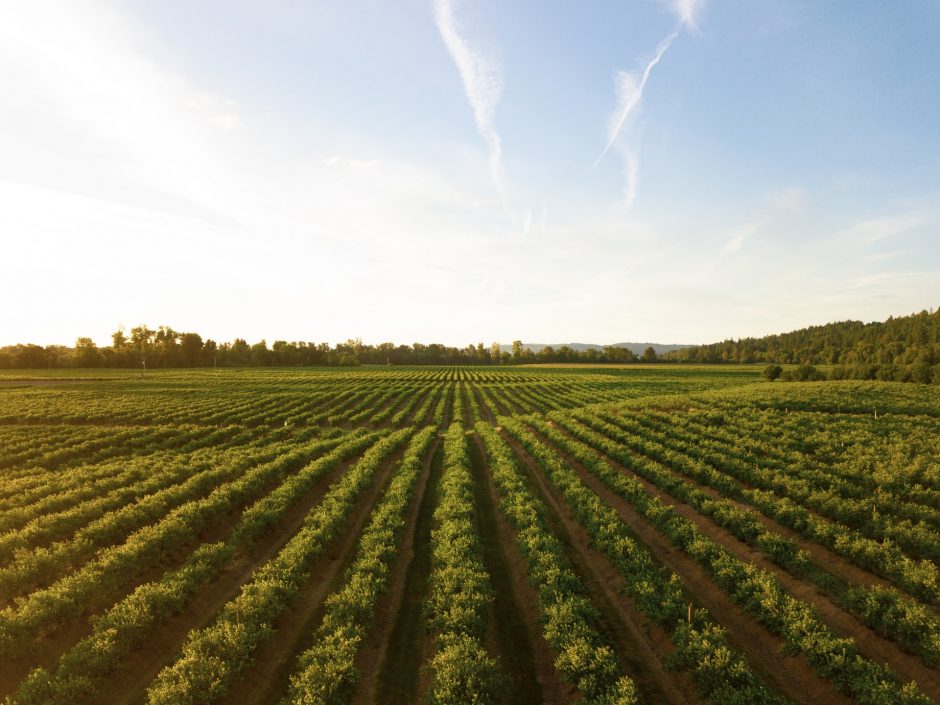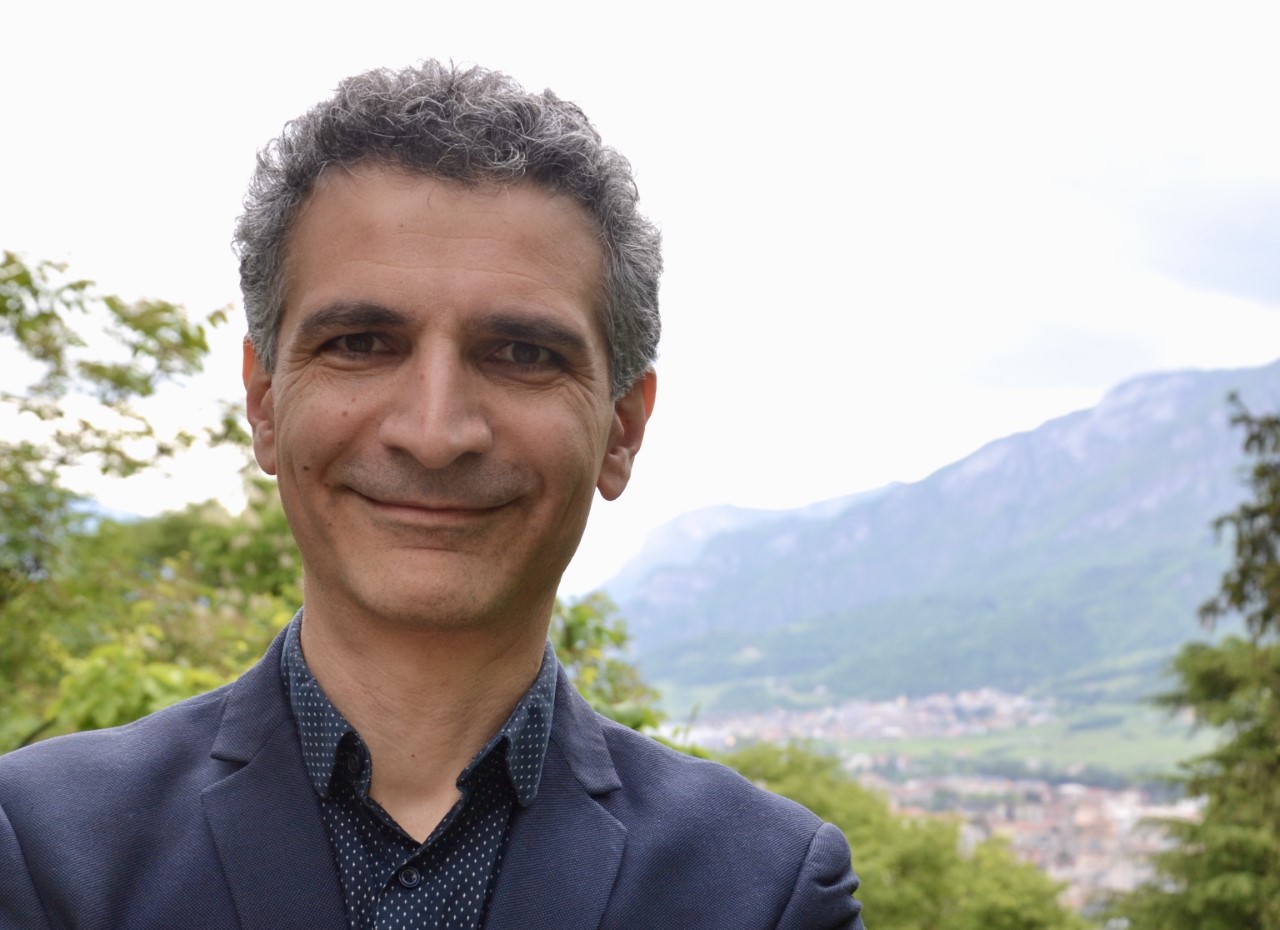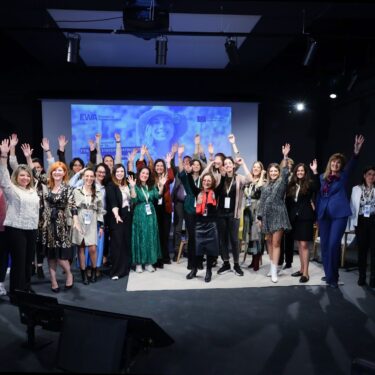Water scarcity in Southern Europe: Food expert insights

Today a selection of food experts from the cross-KIC initiative Finding innovative solutions for water scarcity in Southern Europe share their thoughts with us. The objective of this programme is to enhance knowledge and overcome current barriers to tackle water scarcity in Southern Europe. To achieve this a group of 16 experts from different backgrounds—climate, food, manufacturing and raw materials—has identified the key 6 challenges affecting water scarcity that 30 startups will apply to solve. The initiative will conclude with capacity-building for professionals from diverse sectors working on water scarcity.
Raffaele Giaffreda, Fondazione Bruno Kessler

What motivated you to be part of this initiative on water scarcity in Southern Europe?
“I’m originally from a region of Southern Italy where, well before tourism came, the local economy was almost entirely devoted to agriculture. I grew up spending most of my summers in the rural charm of the countryside, surrounded by natural beauty and colours that, in such arid region, are only made possible by the availability of underground water. Thinking about the threat water scarcity poses to such landscapes is the main reason for my interest on this subject.
Like in most of the Mediterranean, more frequent droughts and other effects of climate change are likely to have a negative impact on the region’s economy if there’s no adaptation of agricultural practices or adoption of innovative solutions for water saving, storage and recycling. Given that agriculture accounts for 70 per cent of water use worldwide, if we can help growers make a more efficient use of irrigation water, there are substantial savings to be had to mitigate the effects of the water scarcity problem. Other countries, like Israel for example (90 per cent of wastewater reuse), are there to exemplify how the adoption of technology and innovation can provide concrete solutions to the looming problems Southern Europe will face in the next decades. I have been on the forefront of telecommunications and IoT technologies for the past 25 years, specialising recently in technology transfer which led me to co-found a startup in the agritech domain. Solutions for water savings in agriculture is one of our main selling points. Personal interests and strong technology competences are therefore what motivated me to become part of this important initiative.”
What food expertise do you bring to the initiative?
“My expertise relates to the primary food production sector, where I bring my competences on technological innovation in the precision agriculture domain. My contribution in particular concerns leveraging the power of IoT to monitor crops at a higher granularity, improving on the information that can already be collected through satellite remote sensing. My ultimate aim is to help growers become more productive and help them mitigate the risks that climate change will increasingly pose to their businesses. We see climate modeling that predicts farmers will be required to produce more food with less resources, making more efficient use of land and water resources. This is where I believe my expertise is useful: Monitoring agricultural practices using IoT technology helps reduce resource waste in the whole food production cycle—and also contributes to better sustainability in this important sector.”
What are some of the current challenges with regards to water scarcity in Southern Europe?
“The best way I found to summarise the challenges we face is to talk about water scarcity as a looming ‘tragedy of commons,’ where the interests of the individuals using large amounts of water clash against those of the community they’re part of. As the effects of climate change reduce the availability of fresh water, such a conflict between ‘self-interest’ and ‘common good’ becomes more of a problem, posing many challenges to the various water stakeholders. Therefore, the goal becomes finding radical new ways to manage water and account for its usage and regulation, factoring in all the interests of those who rely on the availability of fresh water for various reasons (irrigation, hydro power generation, civilian use, tourism, etc.)".
How do you think these can be addressed through the initiative?
“To make sure self-interest and collective interest can be aligned, it becomes paramount to properly account for usage and reduce waste, incentivising virtuous behaviours and deterring wasteful ones. Having a transparent means to measure who uses water and for what purposes would be a step in the right direction towards ensuring fair allocation that can be guaranteed amongst water resource managers and within their respective ecosystems. Besides new policies on usage, but yet within the framing of climate change adaptation, we must find new ways of improving our ability to recycle and store water in big quantities where it is mostly needed, to mitigate the risk associated with more extreme rain events.
Among the many ways in which water scarcity challenges can be addressed, it’s not yet clear which ones guarantee the best impact at-scale and with as little investment as possible. This is where the initiative could help: By fostering further development of knowledge and tools. On the one hand, promoting multi-actor and multi-disciplinary studies that paint a more complete picture for the eyes of policymakers, so it becomes clearer, based on the assessment of the nature of the threat, which are the most promising paths ahead. On the other, the initiative should provide clear guidance and solicit solutions for all those challenges already identified and agreed to be worth investing in.”
What does “innovation” mean to you?
“Recent trends from the past decades show us how we came to make a disproportionate use of planetary resources to sustain our current lifestyles. We consume far more of our planet’s sustainable consumables in a year than what the Earth is capable of restocking in the same period of time. It’s for this simple reason that I think it makes sense to only talk about “sustainable innovation.” Its meaning to me is associated with the ability to solve problems that matter with fresh ideas, bearing in mind circularity principles.”
The initiative brings together different experts, sectors, organisations, start-ups and professionals. Moreover, it’s a collaboration between multiple KICs (Knowledge & Innovation Communities), among others: Why do you think ‘breaking down silos’ and bringing together diverse perspectives is important to transforming food systems?
“I was referring to the looming tragedy of commons in my answer to an earlier question. In order to break any tragedy of commons deadlock, one must take a step back, elevate the viewpoint above individuals’ interests and understand what the ‘common good’ looks like for the wider community of involved stakeholders, before identifying what the best course of action becomes at individuals’ level. ‘Breaking down silos’ and bringing together different stakeholders is the only way to achieve that: It’s like taking a step back when looking at a painting, we may lose the fine details but we gain new, big-picture perspectives otherwise lost. Such a joint effort is important for transforming food systems as it helps find radical new ways in which collective interests can be surfaced and translated into policies that can then steer individual behaviours towards a ‘common good.’
I mentioned above my opinion on the importance of promoting multi-actor and multi-disciplinary studies that paint a more complete picture for policymakers. I feel the initiative’s approach is totally aligned with this view and can indeed help make a difference building a multi-faceted knowledge that is essential in solving complex problems.”
Who or what gives you inspiration in your work with food systems?
“The main driver and inspiration is my willingness to share my knowledge to do something about the problems we face in Southern Europe. There are already regional examples that show how water scarcity problem can be mitigated against and that gives me hope that there is substantial potential to make primary production food systems more resilient and capable of withstanding the challenges ahead. But we must act in a coordinated manner and possibly across wide regions that break countries’ political boundaries. In fact, when it comes to stepping up to the challenge of producing more food with less resources, there is no national success without also fostering the ‘common good’ of wider agricultural regions.”
Diego Intrigiolo, National Research Council

What motivated you to be part of this initiative on water scarcity in Southern Europe?
“I believe water scarcity is one of the main challenges that Southern European societies have to face, with considerable socio-economic and environmental consequences. Only by appraising the challenge at a transnational level, will we be able to find solutions. Initiatives that gather experts from different countries and fields are needed to integrate the scientific findings into technical solutions adopted by the end-users.”
What food expertise do you bring to the initiative?
“My expertise is related to how applied field practices can affect the primary product’s chemical composition. A clear example is for fruit, olive and wine products, where the final quality is very much dependent on the management carried out at the field level.”
What are some of the current challenges with regards to water scarcity in Southern Europe?
“One main challenge is a lack of proper water governance in relation to source demand management. In certain areas, limits on water use should be established based on different types of technical indicators. On the other hand, we require new technologies for cheaper, less energy demanding water desalination, improved crop management practices and plants that are able to improve the intrinsic crop water use efficiency, reducing the consumptive water use."
How do you think these can be addressed through the initiative?
“The initiative can help identify the main challenges and determine what should prioritised in forthcoming project calls or programmes related to water scarcity in Southern Europe.”
What does “innovation” mean to you?
“Innovation means the development and final adaptation and application of research into products or services that are actually employed by end-users and eventually exploited by private companies. In many cases, however, research and innovation should be carried out simultaneously for better identifying the main needs and solutions to be adopted.”
The initiative brings together different experts, sectors, organisations, start-ups and professionals. Moreover, it’s a collaboration between multiple KICs (Knowledge & Innovation Communities), among others: Why do you think ‘breaking down silos’ and bringing together diverse perspectives is important to transforming food systems?
“Food systems require multidisciplinary know-how in order to properly take into account many scientific disciplines ineracting with the technical and socio-economic dimensions of food systems. For technical solutions to be upgraded and exploited, it’s necessary to consider all the surrounding aspects related to a given solution and influencing the food system. This can only be done through a multidisciplinary work.”
Who or what gives you inspiration in your work with food systems?
“My father is an agricultural engineer and we had a citrus farm where I used to go since I was a child. I also studied agricultural engineering because I liked the idea of considering the entire agro-ecosystem, while also taking into account the environmental aspects. The possibility of combining environmental and eco-physiology studies attracted me, as well as the importance and relevance of the system under study.”
If you are interested in this initiative, you can read interviews with other experts.
More blog posts by EIT Food South







